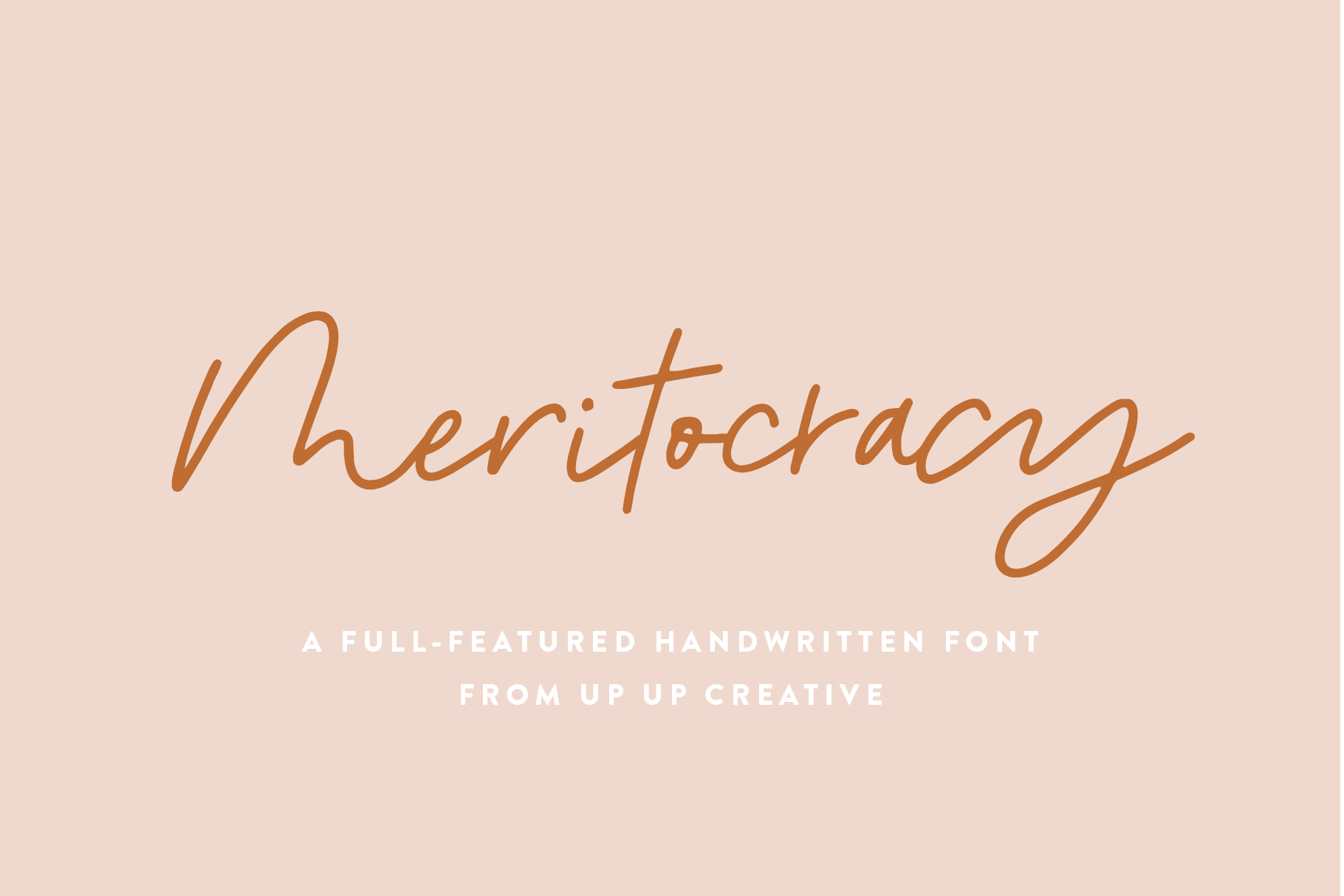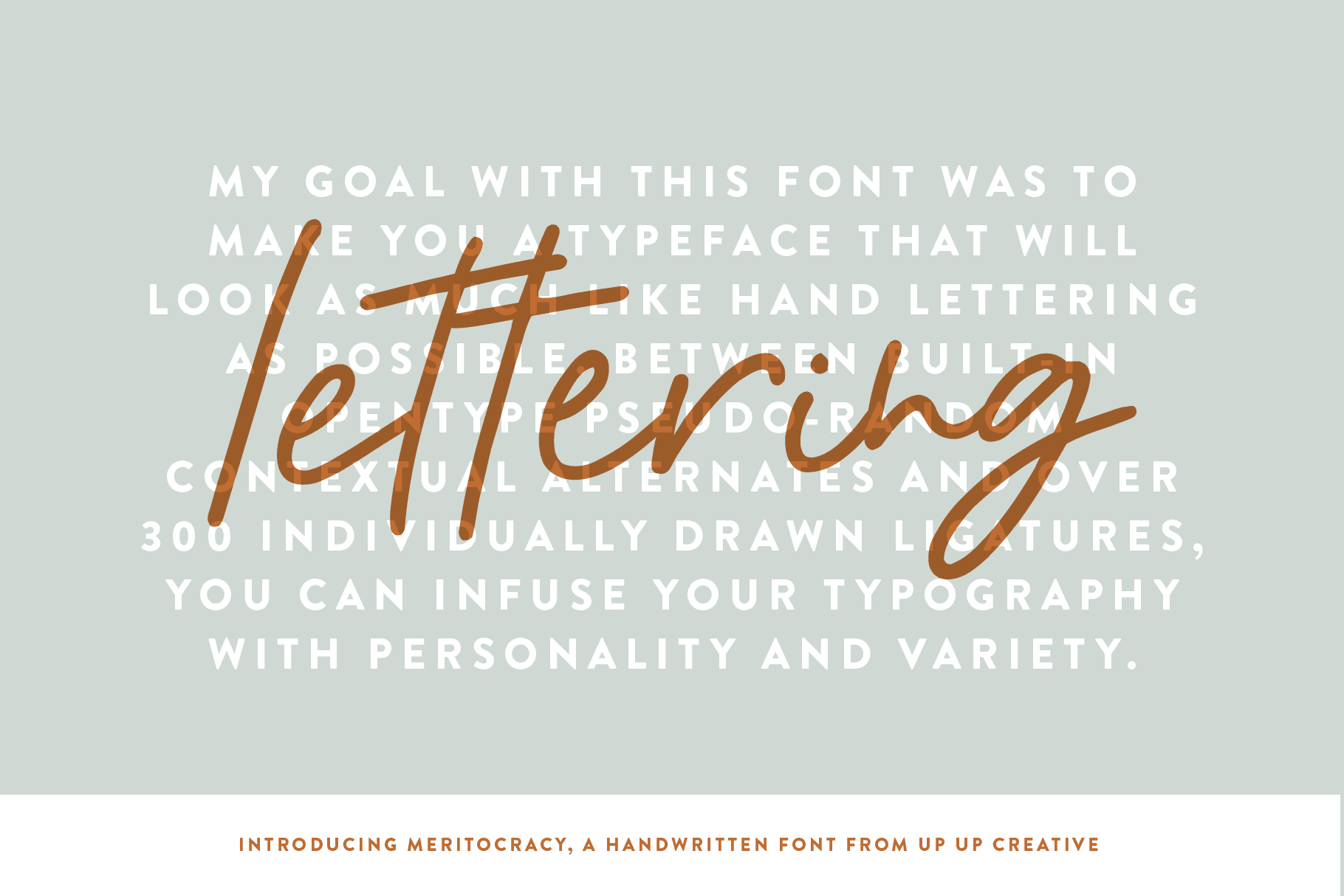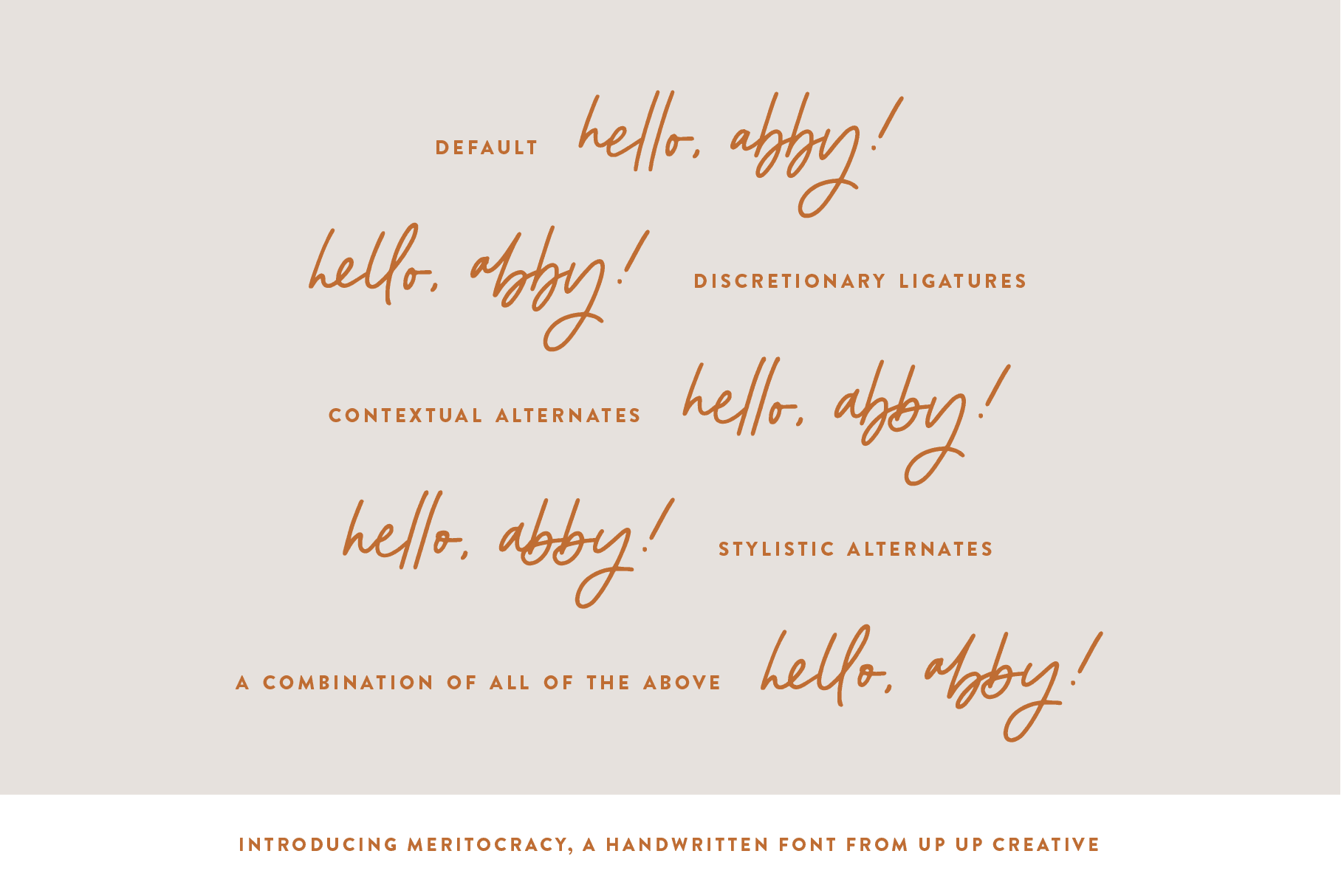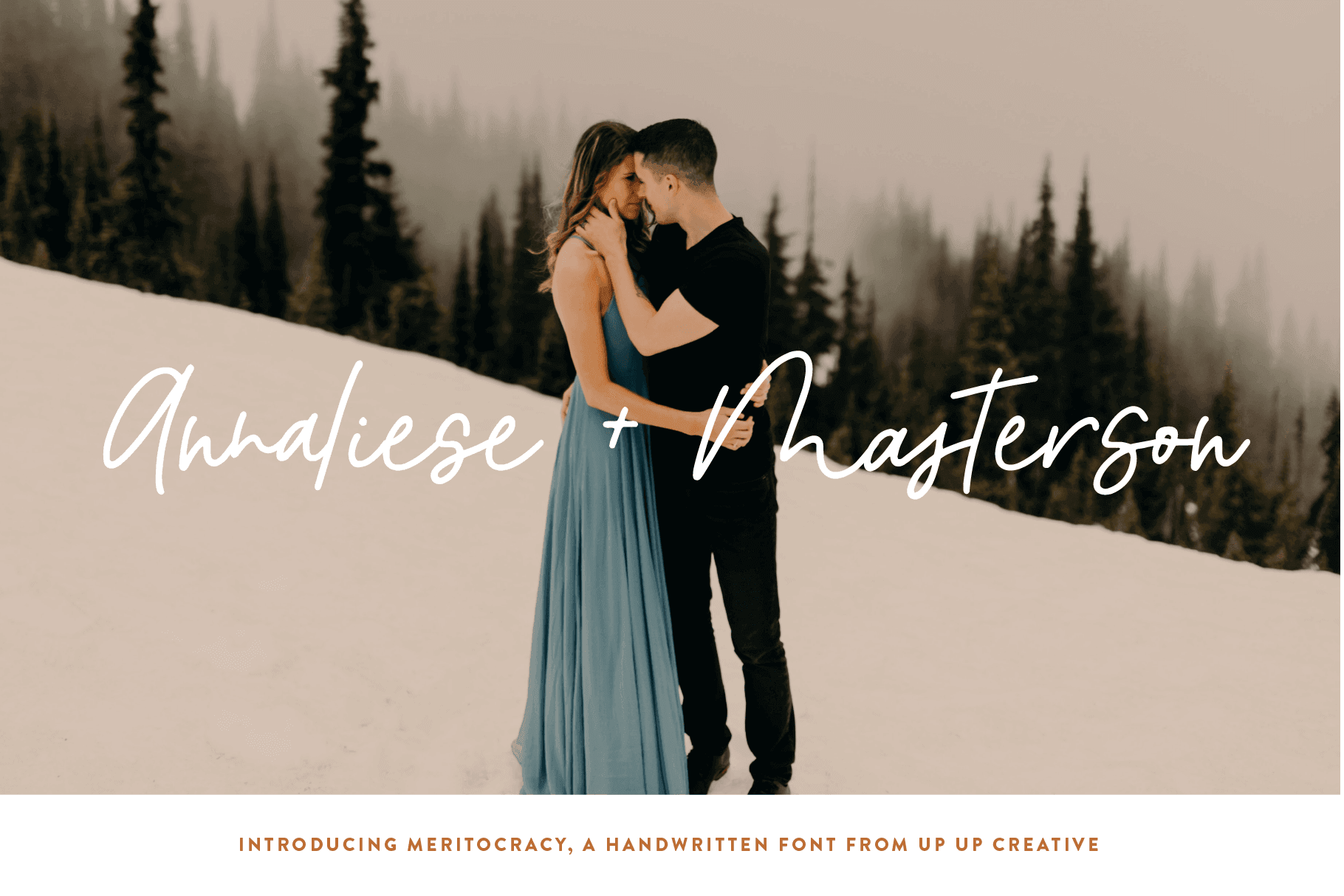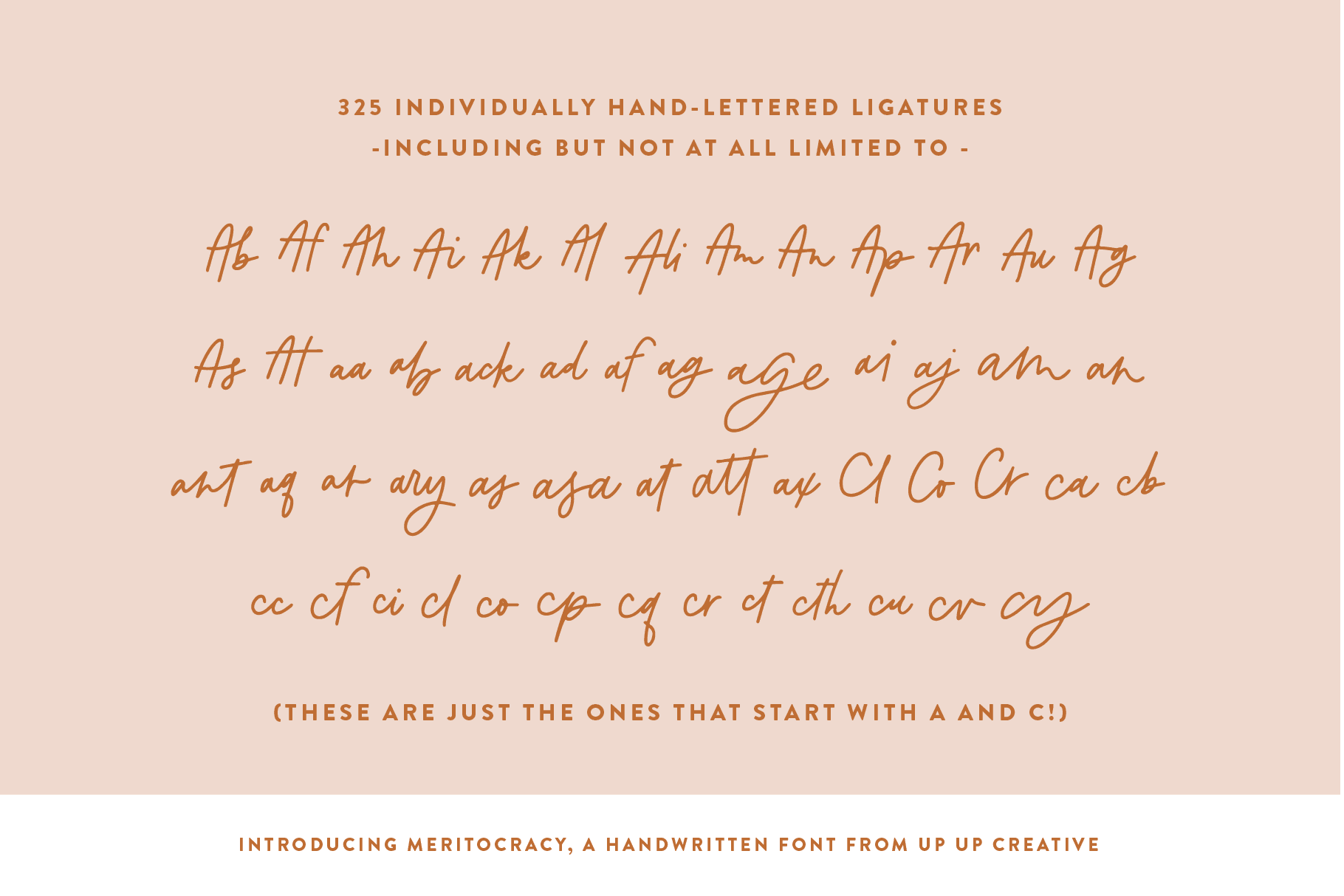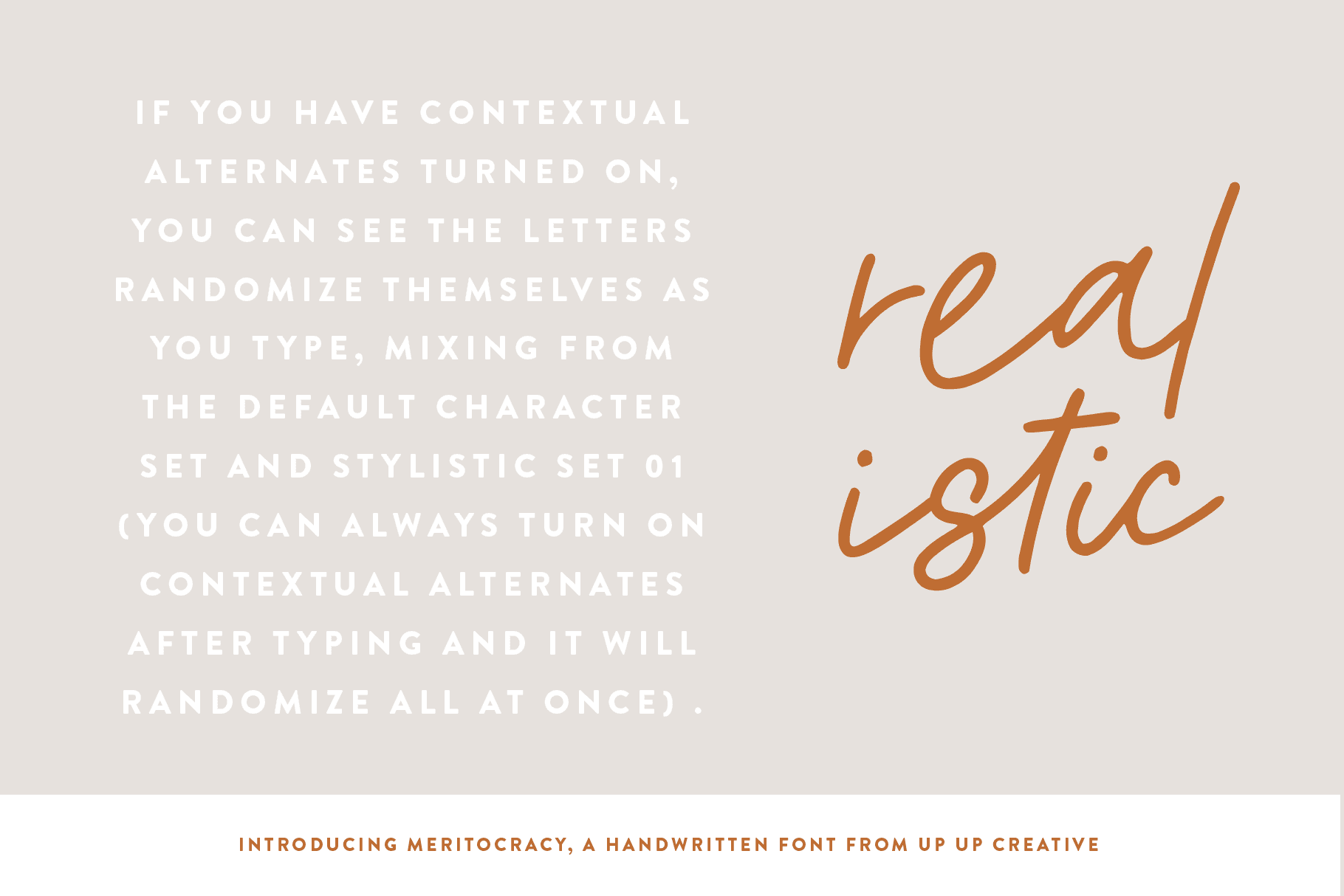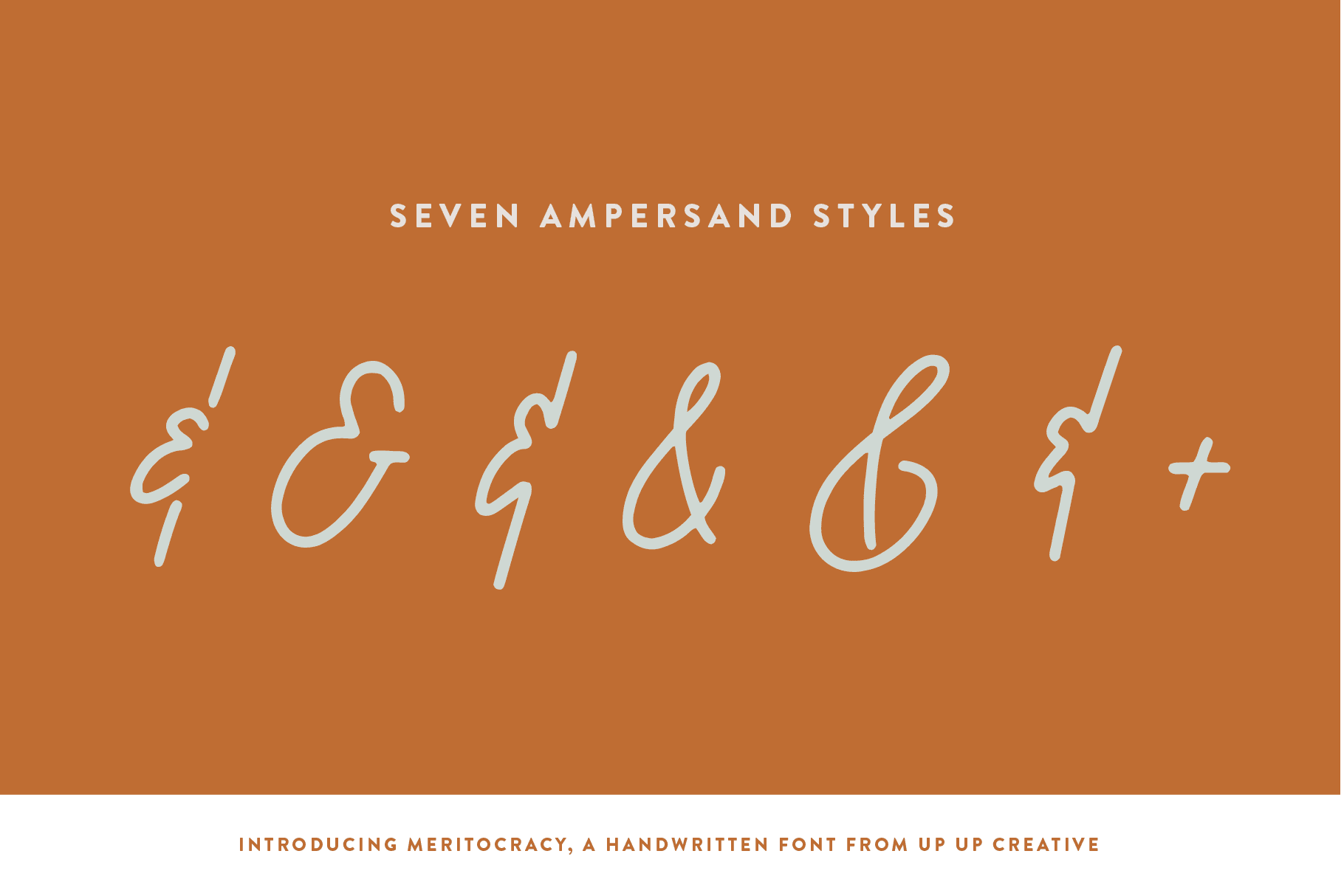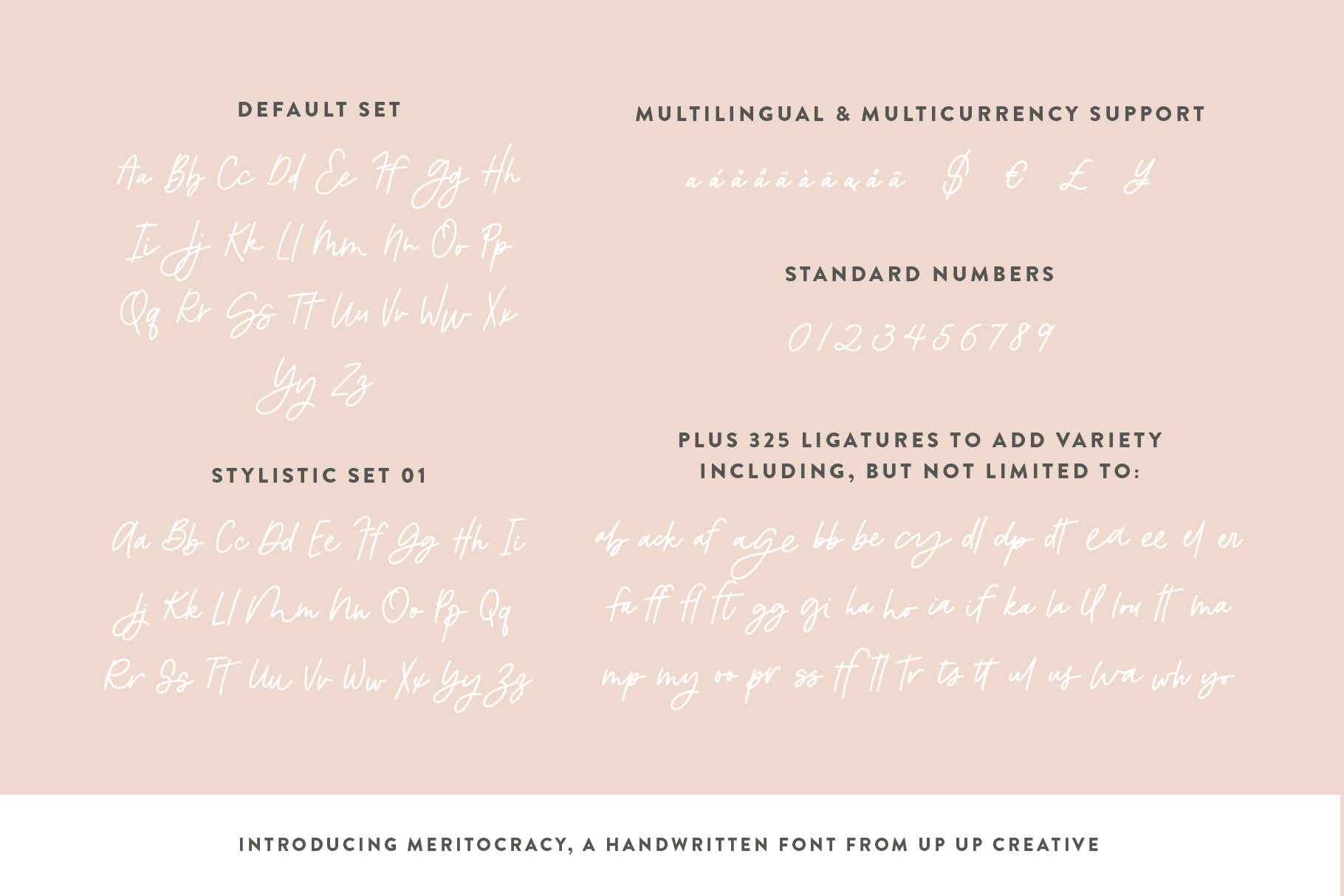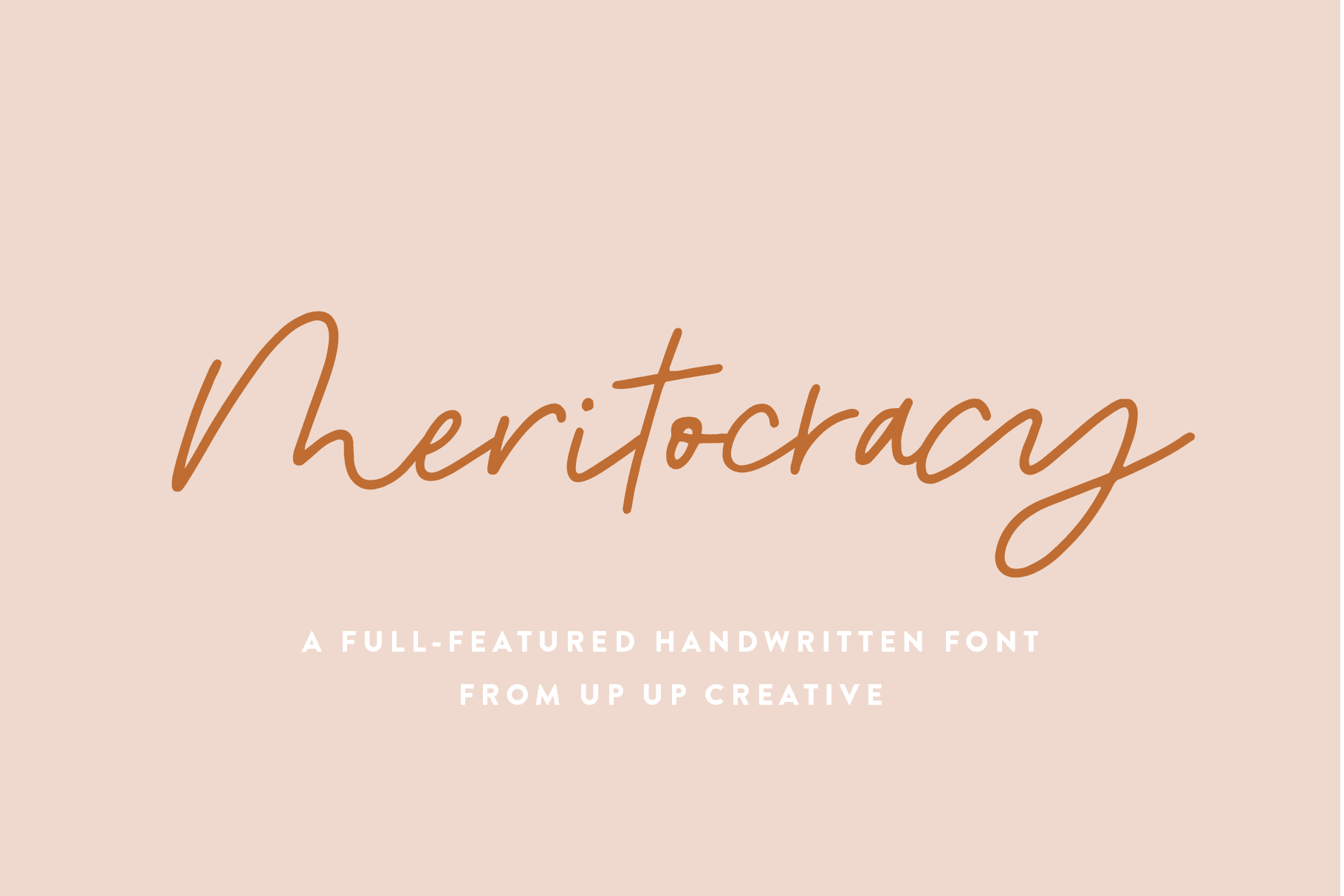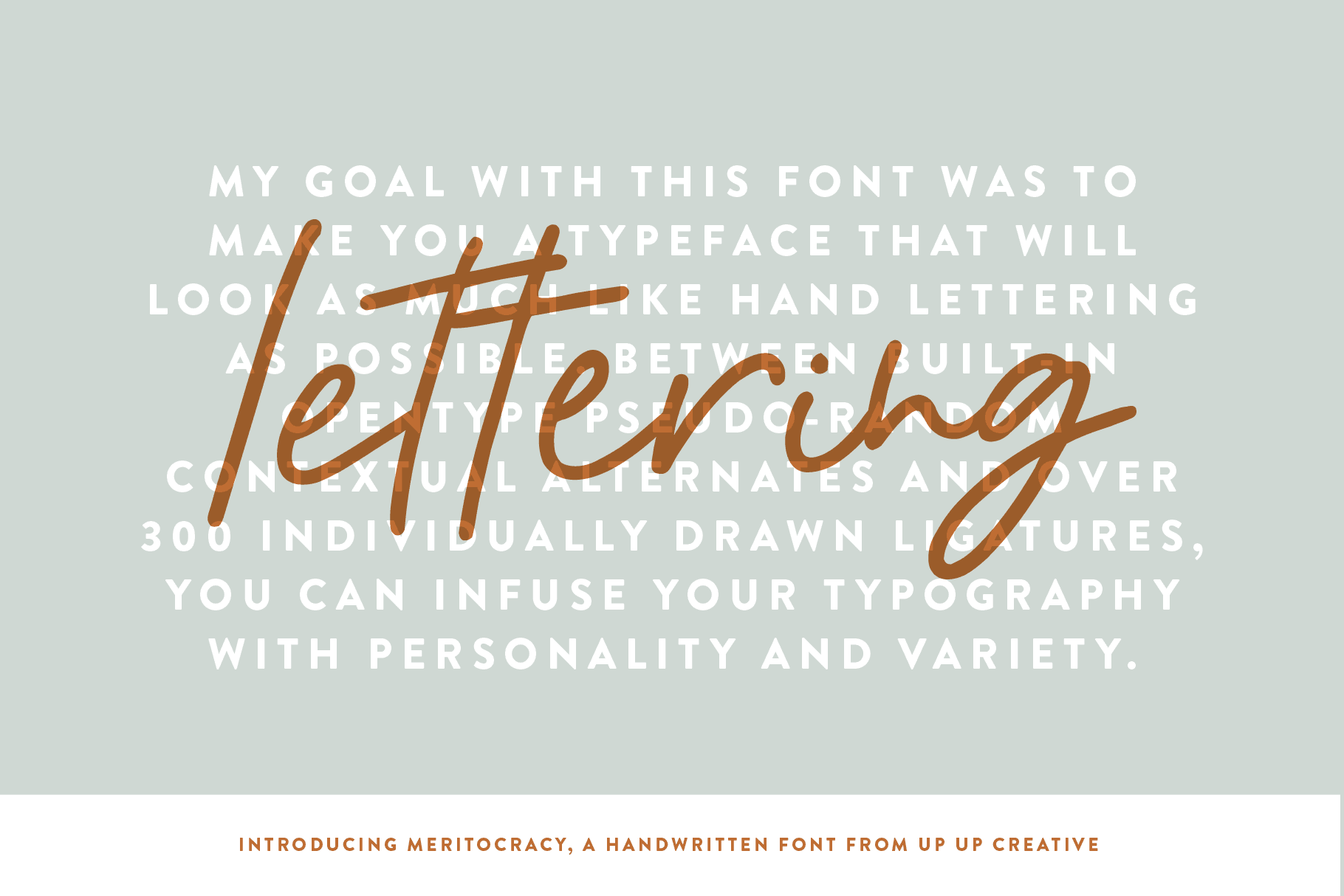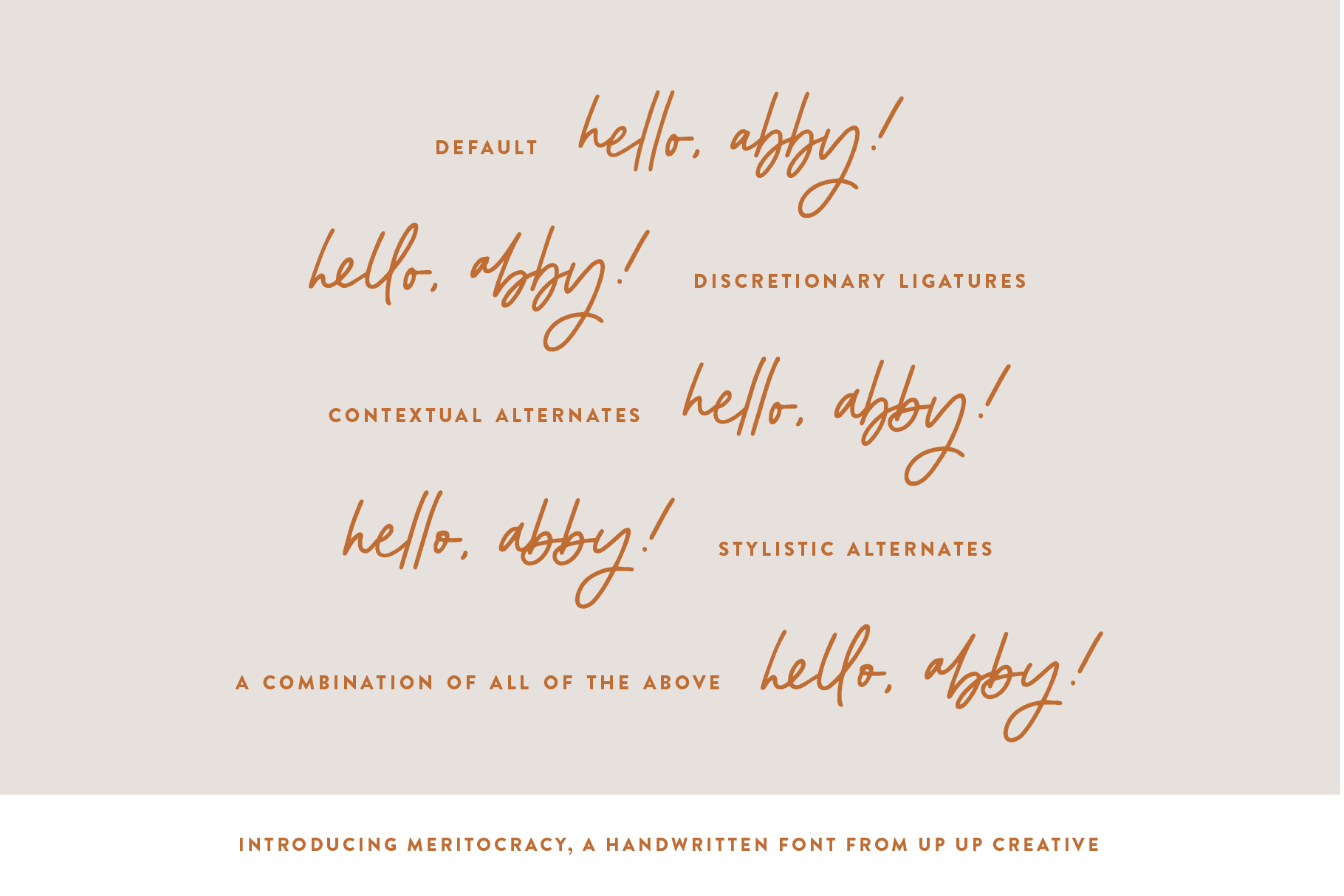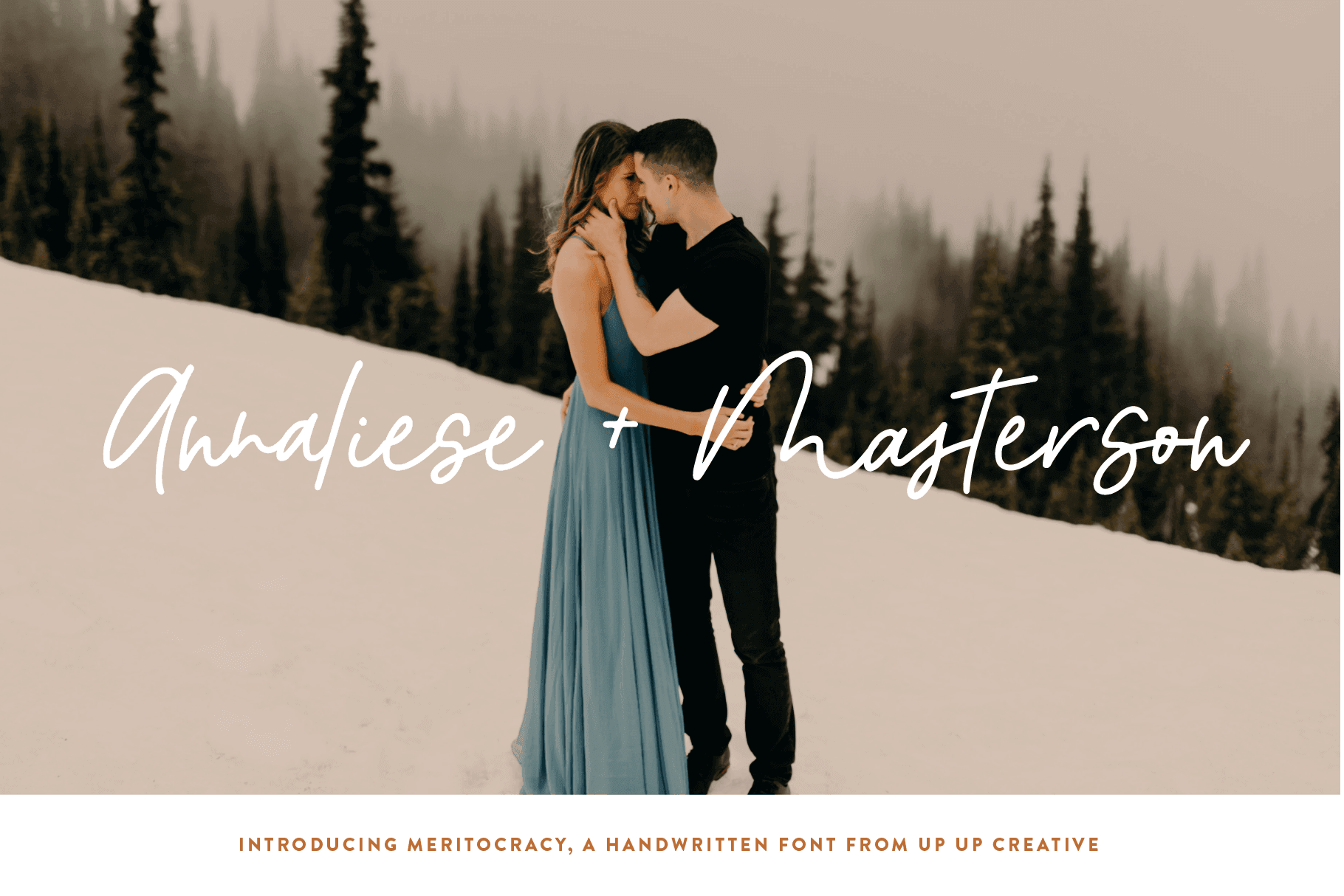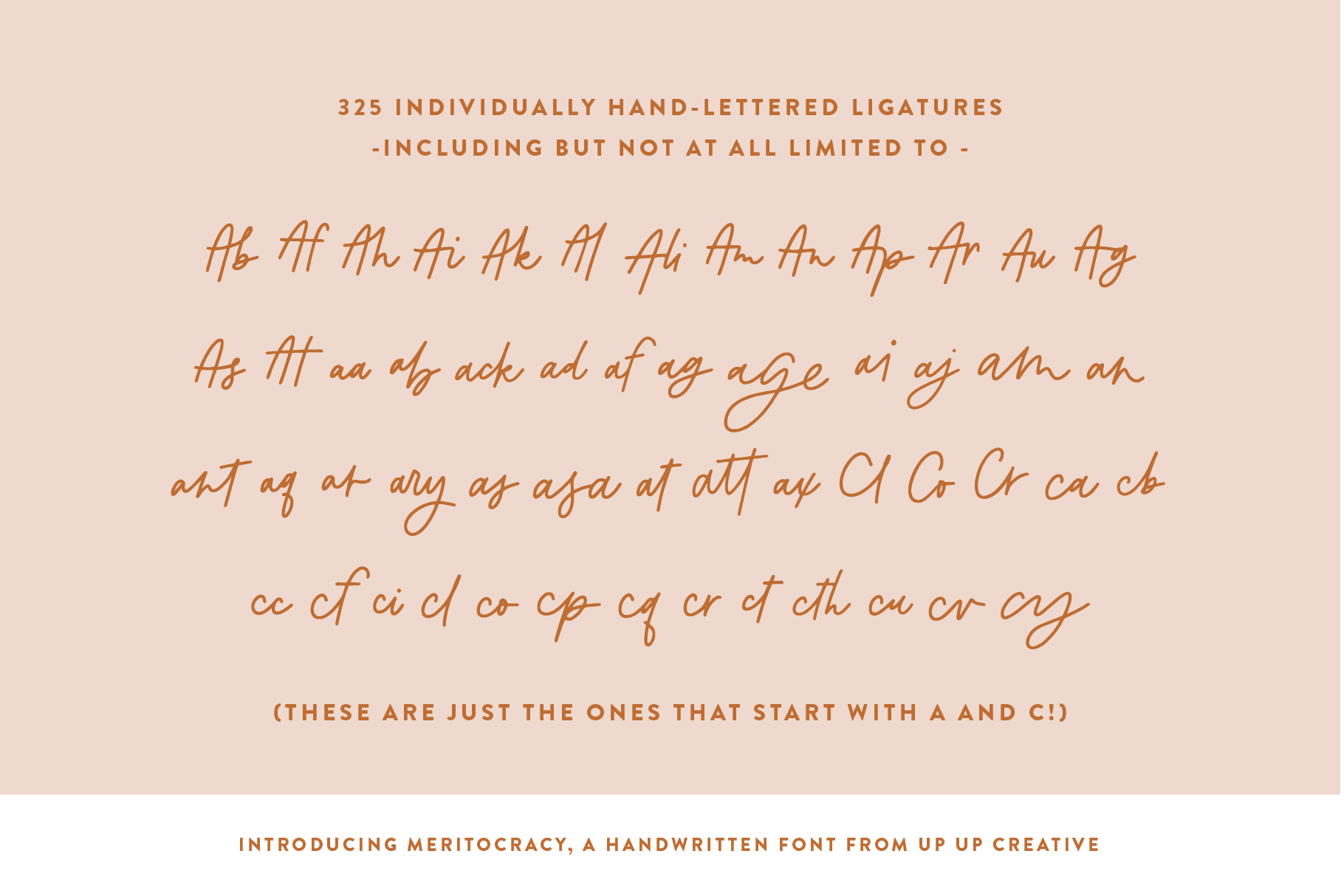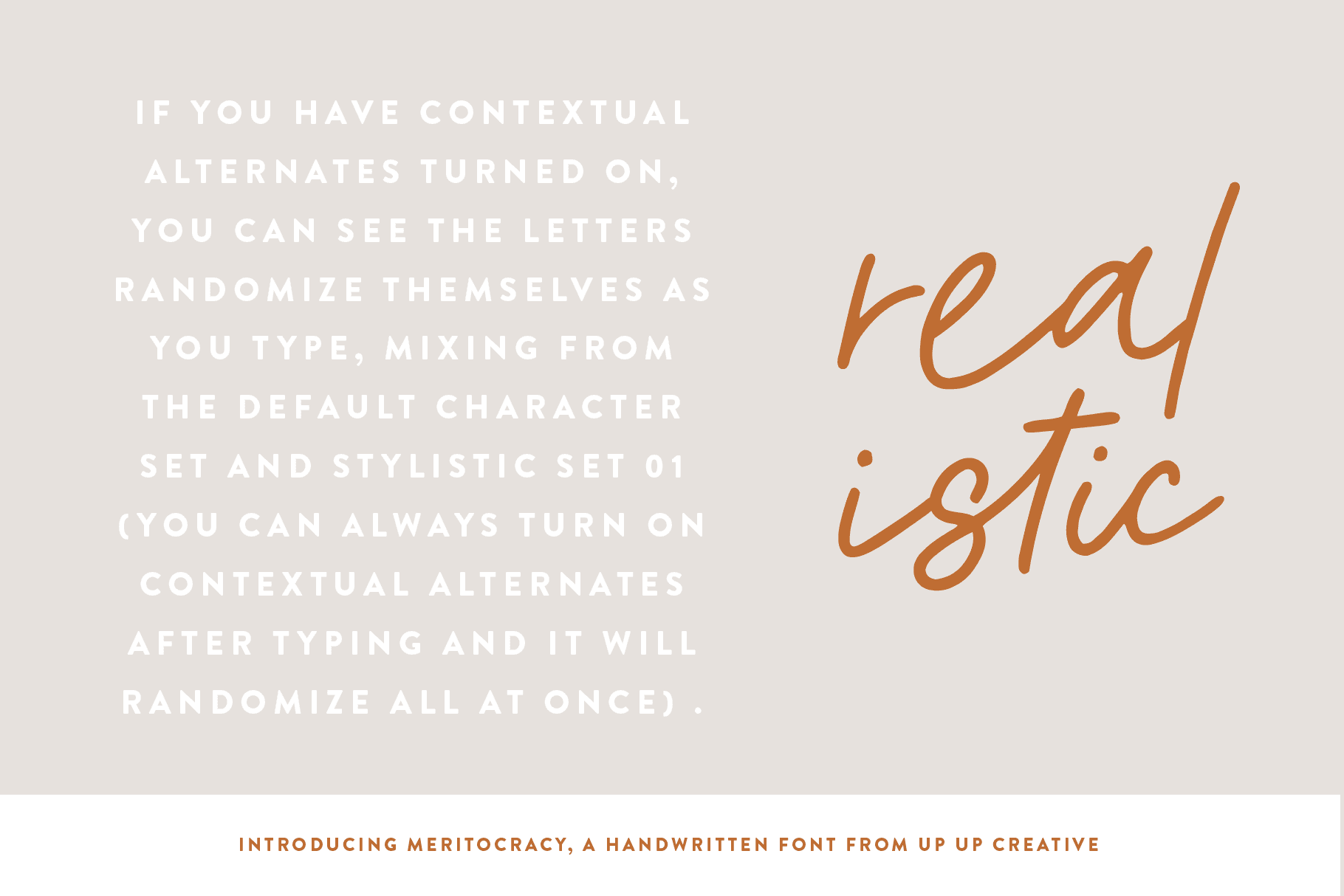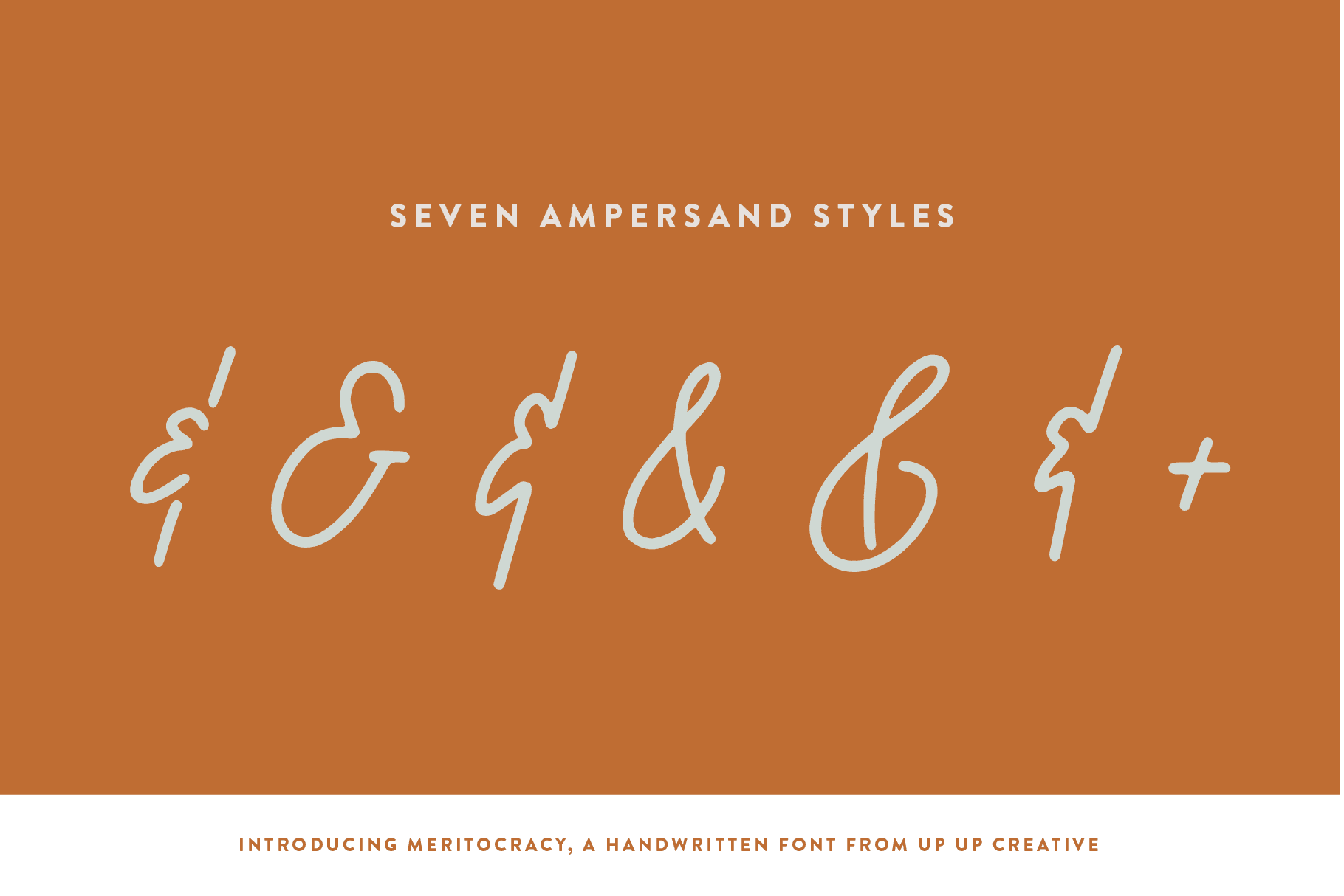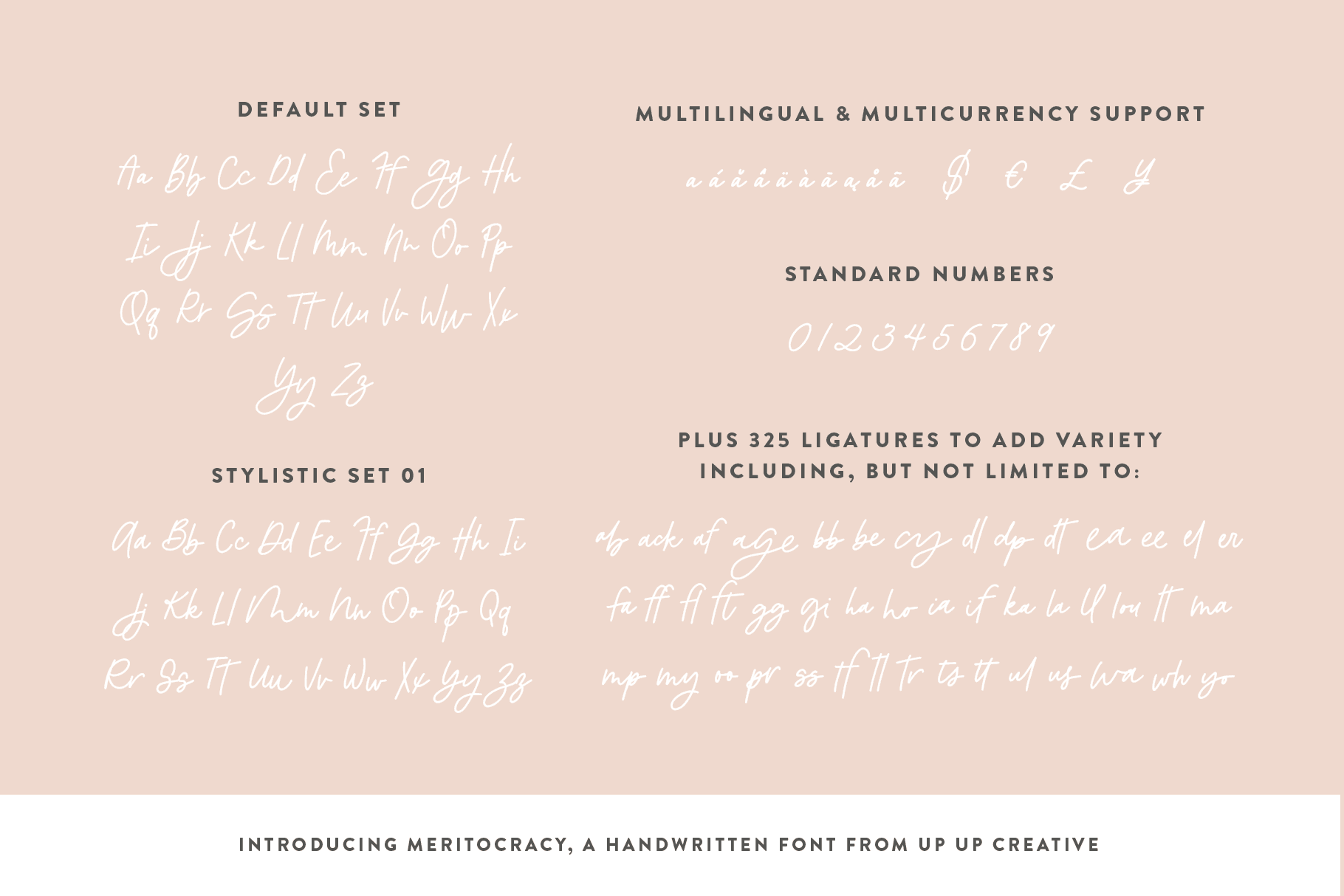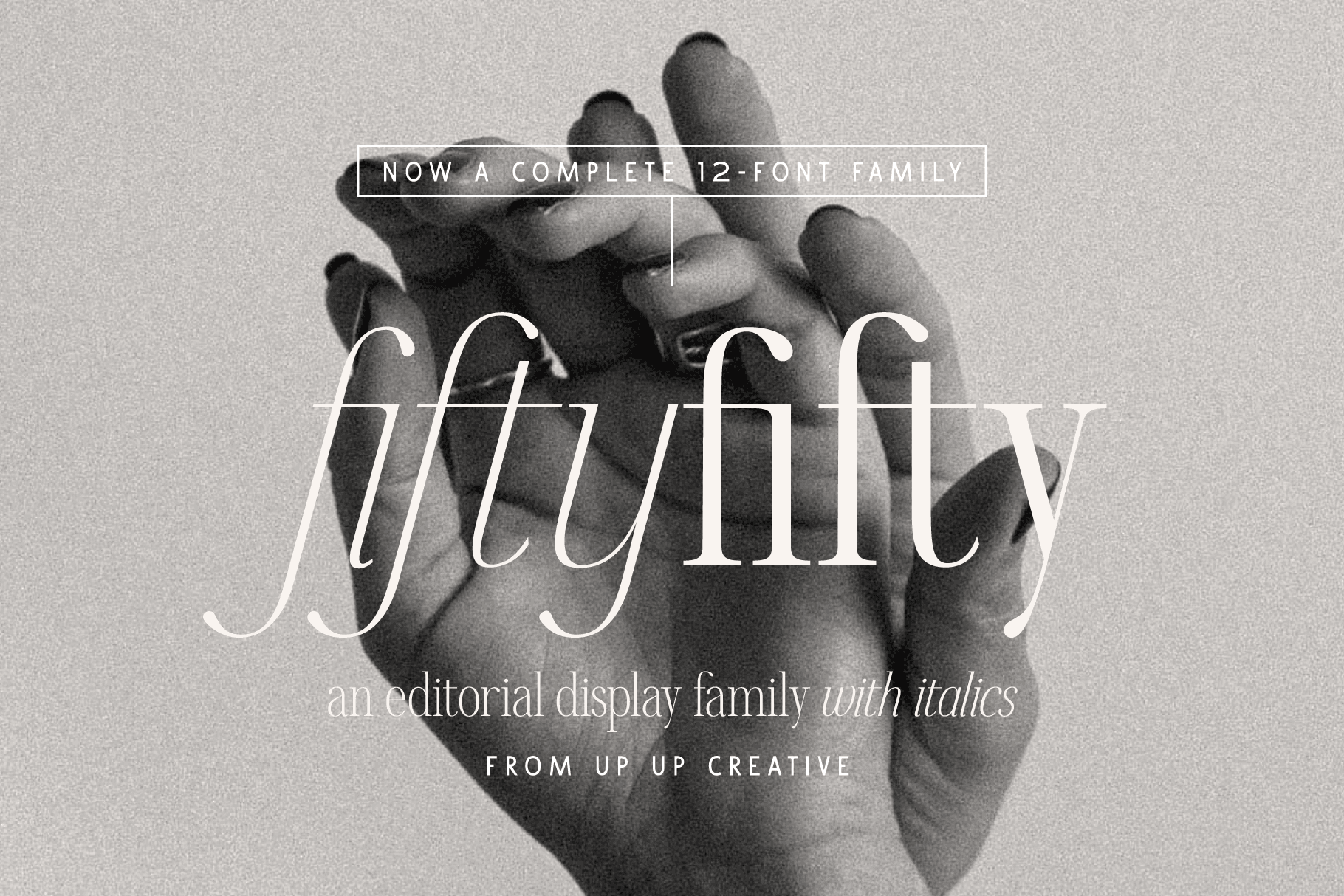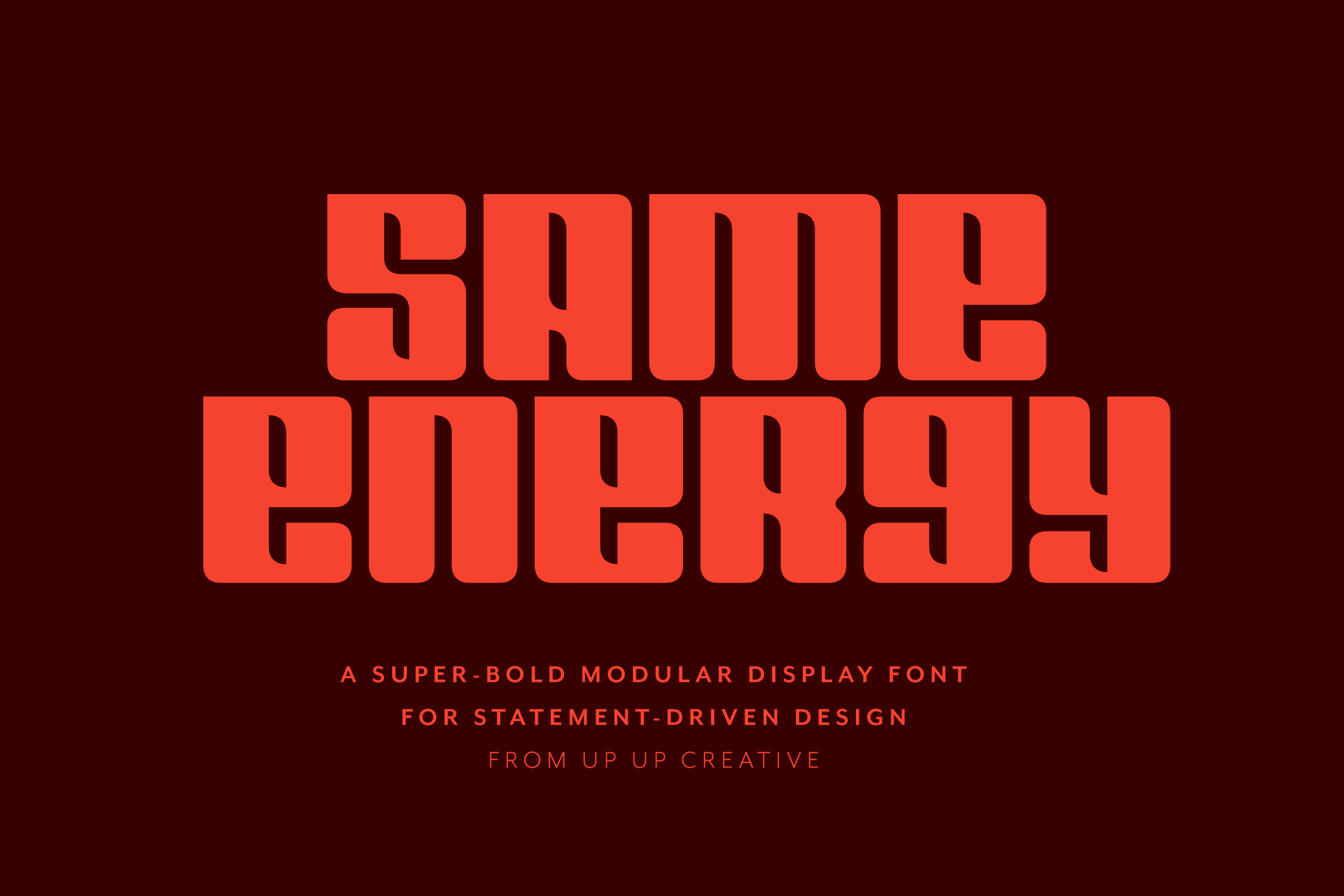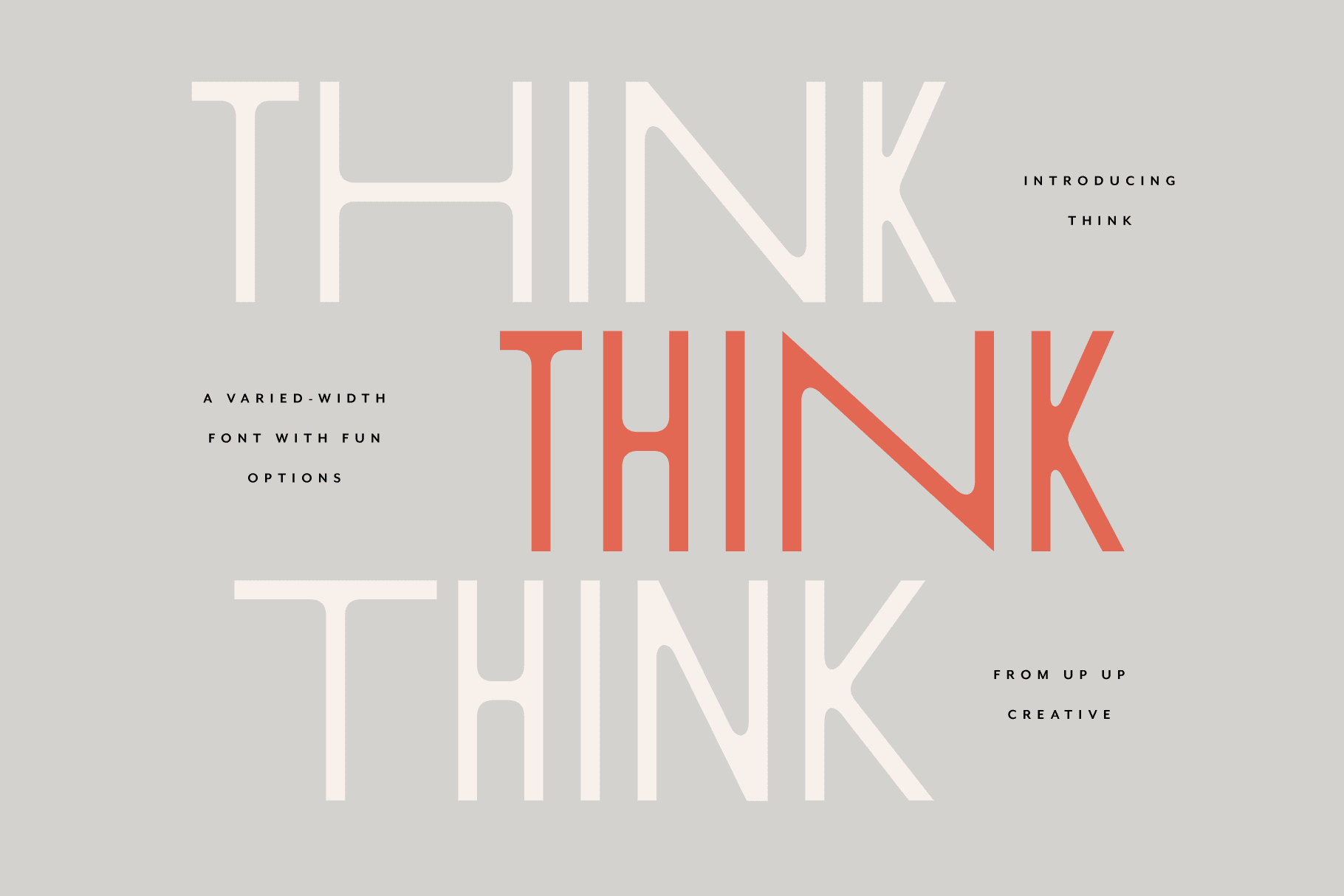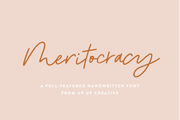Meritocracy Script Font
Meritocracy Script Font
Meritocracy is a full-featured handwritten font with tons of alternate characters and OpenType features. My goal with this font was to make you a typeface that will look as much like hand lettering as possible. Using the built-in OpenType pseudo-random contextual alternates and over 300 individually drawn ligatures, you can infuse your typography with personality and variety.
Bundle & Save:
Add any 2 fonts (or license types) to your cart to get 10% off. Add 3 or more to save 30%—automatically applied at checkout.
Share this product
Try Before You Buy
Heads up: You’ll get the best experience with the type testers on desktop — some features may be limited on mobile.
Product Details
Supports 194 Languages
Supports 194 Languages
Abenaki, Afaan Oromo, Afar, Afrikaans, Albanian, Alsatian, Amis, Anuta, Aragonese, Aranese, Arrernte, Arvanitic, Asturian, Atayal, Aymara, Basque, Bemba, Bikol, Bislama, Bosnian, Breton, Cape Verdean, Catalan, Cebuano, Chamorro, Chavacano, Chichewa, Chickasaw, Cimbrian, Cofan, Corsican, Creek, Crimean Tatar, Croatian, Czech, Danish, Dawan, Delaware, Dholuo, Drehu, Dutch, English, Estonian, Faroese, Fijian, Filipino, Finnish, Folkspraak, French, Frisian, Friulian, Galician, Ganda, Genoese, German, Gooniyandi, Greenlandic, Guadeloupean, Gwichin, Haitian Creole, Han, Hawaiian, Hiligaynon, Hopi, Hotcak, Hungarian, Icelandic, Ido, Ilocano, Indonesian, Interglossa, Interlingua, Irish, Italian, Jamaican, Javanese, Jerriais, Kala Lagaw Ya, Kapampangan, Kaqchikel, Karelian, Kashubian, Kikongo, Kinyarwanda, Kiribati, Kirundi, Klingon, Kurdish, Ladin, Latin, Latino Sine, Lithuanian, Lojban, Lombard, Low Saxon, Luxembourgish, Maasai, Makhuwa, Malay, Maltese, Manx, Maori, Marquesan, Meriam Mir, Mohawk, Montagnais, Montenegrin, Murrinhpatha, Nagamese Creole, Ndebele, Neapolitan, Ngiyambaa, Niuean, Noongar, Norwegian, Novial, Occidental, Occitan, Oshiwambo, Ossetian, Palauan, Papiamento, Piedmontese, Polish, Portuguese, Potawatomi, Qeqchi, Quechua, Rarotongan, Romansh, Rotokas, Sami Inari, Sami Lule, Sami Northern, Sami Southern, Samoan, Sango, Saramaccan, Sardinian, Scottish Gaelic, Serbian, Seri, Seychellois, Shawnee, Shona, Sicilian, Silesian, Slovak, Slovenian, Slovio, Somali, Sorbian Lower, Sorbian Upper, Sotho Northern, Sotho Southern, Spanish, Sranan, Sundanese, Swahili, Swazi, Swedish, Tagalog, Tahitian, Tetum, Tok Pisin, Tokelauan, Tongan, Tshiluba, Tsonga, Tswana, Tumbuka, Tuvaluan, Tzotzil, Ukrainian, Uzbek, Venetian, Vepsian, Volapuk, Voro, Wallisian, Walloon, Waraywaray, Warlpiri, Wayuu, Welsh, Wikmungkan, Wiradjuri, Wolof, Xhosa, Yapese, Yindjibarndi, Zapotec, Zulu, Zuni
OpenType Features
OpenType Features
- character variants
- contextual alternates ** Special Meritocracy-specific Note: If you are using OpenType-capable software like Adobe Illustrator, Photoshop, InDesign, or CorelDraw and you have contextual alternates turned on, you can see the letters randomize themselves as you type, mixing from the default character set and stylistic set 01. (You can always turn on contextual alternates after you have already typed your passage and it will randomize all at once, or you can choose to turn off contextual alternates and substitute specific glyphs yourself - I find that if I'm typing a word or two, I prefer to control the individual glyphs myself; if I'm typing a paragraph, I like to use the built-in randomness of the contextual alternates feature). See a little glimpse of this feature in action right here Note that this pseudo-randomization (aka contextual alternate feature) is ON by default in Apple's Pages app and OFF by default in Microsoft Word, but it can be turned on.
- standard and discretionary ligatures
- fractions
- localized forms (multi-language and multi-currency support)
- ordinals and superscripts
- stylistic alternates
- stylistic sets
The OpenType features can be very easily accessed by using OpenType-savvy programs (like most by Adobe, Corel, and Affinity). If you're using software that does not support OpenType features, your purchase download will include instructions and files that you can use with Character Map software in order to access all included characters.
Includes 336 ligatures
File Formats
File Formats
- OTF for Desktop, Template, Server, and ePub licenses (think Word, Adobe, Canva Pro, Affinity, etc.)
- WOFF & WOFF2 for Web licenses (think HTML/CSS, Squarespace, Shopify, WordPress, Showit, Wix, Webflow, etc.)
Additional Details
Additional Details
- Released in 2019
- Includes 934 glyphs
- 1 Style, 1 Weight
Full Character Map
Never wonder if a font has what you need; here you can preview every single glyph in the font.
Got questions?
Here are some common pre-purchase questions I get. If you don't see your question here, you can also check the full FAQs here or maybe check out the licensing guide.
How/when will I get my fonts?
How/when will I get my fonts?
After checkout, you’ll have the opportunity to download your files immediately. You will also receive a download link via email. If you created an account during checkout, you can also log in to download your files (for all your order history) at any time.
Do you offer bundles or discounts?
Do you offer bundles or discounts?
I usually have some kind of sale running on something somewhere, haha. Join the email list for the latest on promotions. (PRO TIP: joining also gets you a discount code when you sign up.)
Even better, you can also build your own bundle and get an automatic discount any time.
Here’s how it works:
If you buy a second license type for the same font (for example, Desktop + Web), you’ll automatically get a 10% discount on both licenses. No code needed.
OR:
Purchase any three products and automatically save 30% on your whole order. Again, no code needed.
I do also sometimes offer discounts for students and non-profits. Contact me with the details of your educational or non-profit project for special pricing.
Do you offer demo versions of your fonts?
Do you offer demo versions of your fonts?
Unfortunately, I do not. However, every font on my site includes a live type tester so you can try it out with your own text before you buy. You’ll also find a full character map image on each product page, showing every glyph included in the font.
When do I need a webfont license?
When do I need a webfont license?
You’ll need a webfont license if you’re using the font as live, selectable text on a website—meaning the text is rendered in the browser using CSS, not part of a static image.
If you're just using the font to create logos, headers, or graphics that are exported as images (like PNGs or JPGs), a desktop license is all you need. But if the font is embedded in your site’s code so visitors see your headlines, body text, or navigation styled in that font, that counts as webfont use and requires a web license.
The way I think of it is like this -- are you going to be installing the font on a web server or on a site hosted on Shopify, Squarespace, WordPress, Wix, Showit, Webflow, etc.? Or have you been told that you need WOFF/WOFF@ files? Then you need a webfont license.
Still not sure? Just send me a quick note with how you plan to use the font and I’ll point you in the right direction.


